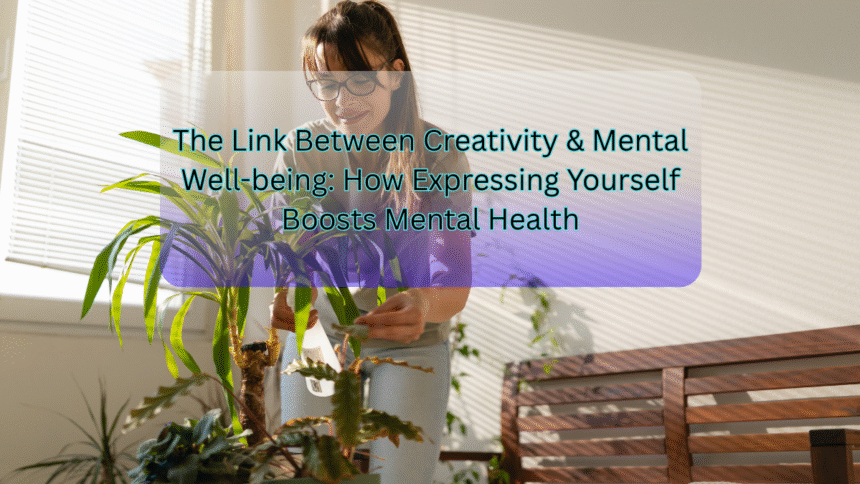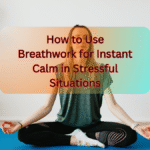Creativity Mental Well-being
Have you ever noticed how painting, writing, or even doodling can make you feel lighter? Or how playing an instrument or dancing can lift your mood almost instantly? There’s a deep connection between creativity and mental well-being—one that science continues to explore.
Creativity isn’t just about producing art; it’s a powerful tool for self-expression, emotional release, and mental clarity. Whether you consider yourself an artist or not, engaging in creative activities can significantly improve your psychological health. In this post, we’ll explore how creativity enhances mental well-being, practical ways to incorporate it into your life, and why making time for creative expression is more than just a hobby—it’s a form of self-care.

How Creativity Supports Mental Well-being
1. Acts as a Natural Stress Reliever
When you immerse yourself in a creative activity—whether it’s knitting, journaling, or cooking—your brain enters a state of “flow.” This meditative-like state reduces stress by lowering cortisol levels, the hormone responsible for anxiety. Studies have shown that engaging in creative tasks can be as calming as mindfulness meditation.
Tip: Try keeping a sketchbook or journal nearby. Even five minutes of free drawing or writing can help clear your mind.
2. Enhances Emotional Expression & Processing
Not all emotions are easy to verbalize. Creativity provides an alternative outlet for expressing complex feelings. Painting, poetry, or music can help you process grief, joy, anger, or confusion in a way that words sometimes can’t.
Tip: If you’re feeling overwhelmed, try “emotion doodling”—sketch shapes or colors that represent your current mood.
3. Boosts Self-Esteem & Confidence
Completing a creative project—no matter how small—gives a sense of accomplishment. This builds confidence and reinforces a positive self-image. Over time, this can combat feelings of inadequacy or self-doubt.
Tip: Start with simple projects (like a short poem or a DIY craft) to build momentum.
4. Fosters Problem-Solving & Cognitive Flexibility
Creativity isn’t just about art; it’s about thinking differently. Engaging in creative activities strengthens neural pathways, improving cognitive flexibility—the ability to adapt to new situations and solve problems more effectively.
Tip: Play brain-stimulating games like puzzles or improv storytelling to sharpen creative thinking.
5. Combats Depression & Anxiety
Research suggests that creative expression can reduce symptoms of depression and anxiety. A study published in the Journal of Positive Psychology found that people who engaged in daily creative activities reported higher levels of happiness and lower stress.
Tip: If you’re feeling low, try “gratitude collage-making”—cut out images or words that represent things you’re thankful for.
Video Credits
How to Incorporate Creativity Into Your Daily Life
You don’t need to be a professional artist to reap the mental health benefits of creativity. Here are simple ways to make it part of your routine:
1. Morning Pages (Free Writing)
Popularized by Julia Cameron in The Artist’s Way, morning pages involve writing three pages of stream-of-consciousness thoughts first thing in the morning. This practice clears mental clutter and sparks creativity.
2. Creative Hobbies for Relaxation
- Adult coloring books (proven to reduce anxiety)
- DIY crafts (upcycling old items can be therapeutic)
- Photography walks (capturing moments mindfully)
3. Music & Movement
- Play an instrument (even beginner apps like Simply Piano help)
- Dance freely to your favorite songs (no rules, just movement)
4. Digital Detox & Analog Creativity
Reduce screen time by swapping social media scrolling for:
- Handwritten letters
- Clay modeling
- Gardening (a creative way to connect with nature)
Debunking Common Myths About Creativity
Myth 1: “I’m Not Creative”
Creativity isn’t limited to “artistic” people. Cooking, organizing, and even problem-solving at work are all forms of creativity.
Myth 2: “Creativity Requires Talent”
The goal isn’t perfection—it’s expression. Scribble badly, write poorly, sing off-key. The process matters more than the outcome.
Myth 3: “I Don’t Have Time”
Even five minutes counts. Creativity doesn’t demand hours—just intention.
Final Thoughts: Make Creativity a Habit
The link between creativity and mental well-being is undeniable. Whether through writing, painting, dancing, or cooking, creative expression helps process emotions, reduce stress, and foster joy. The best part? There’s no right or wrong way to do it.
So, grab a pen, pick up an instrument, or try a new recipe. Your mind will thank you.
What’s your favorite creative outlet? Share in the comments—we’d love to hear what works for you!











